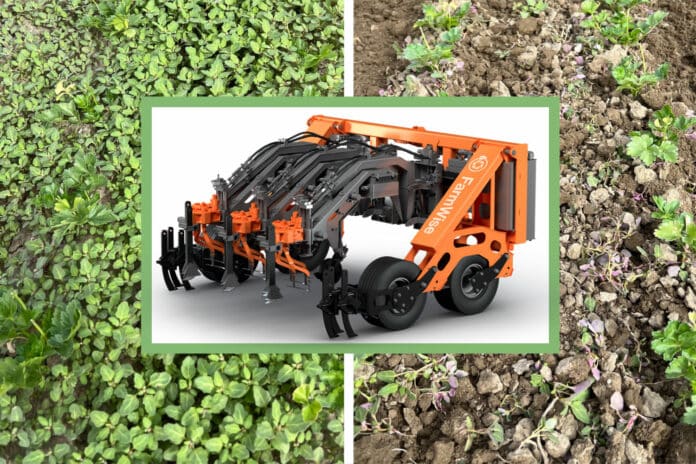There’s a lot riding on farmers’ ability to fight weeds, which can strangle crops and destroy yields. Unfortunately, spraying herbicides to deal with the intrusive plants pollutes the environment and harms human health. Also, widespread labor shortages have hit the agricultural sector particularly hard.
FarmWise, a startup that aims to increase the efficiency of the farming industry, has come up with a solution. The MIT alumnus-founded company has developed autonomous weeding robots that use artificial intelligence to cut out weeds while leaving crops untouched.
Called the Titan, the hulking, autonomous robot resembles tractors to preserve crops while snipping weeds, eliminating the need for herbicides. It uses machine vision to distinguish weeds from crops, including leafy greens, cauliflower, artichokes, and tomatoes, while snipping weeds with sub-inch precision. Around 15 Titans are already in use on the fields of 30 large farms in California and Arizona for the last few years.
Last month, the company unveiled its newest robot, Vulcan, which is more lightweight and pulled by a tractor. Both the Titan and Vulcan are powered by an AI that directs hundreds of tiny blades to snip out weeds around each crop. The Vulcan is controlled directly from the tractor cab, where the operator has a touchscreen interface Boyer compared to those found in a Tesla.
“We have a growing population, and we can’t expand the land or water we have, so we need to drastically increase the efficiency of the farming industry,” says Sebastien Boyer, co-founder of FarmWise. “I think AI and data are going to be major players in that journey.”
FarmWise now has more than 15,000 commercial hours under its belt. The company hopes the data it collects can be used for more than just weeding in the near future.
“It’s all about precision,” Boyer says. “We’re going to better understand what the plant needs and make smarter decisions for each one. That will bring us to a point where we can use the same amount of land, much less water, almost no chemicals, and much less fertilizer and still produce more food than we’re producing today. That’s the mission. That’s what excites me.”
Although the hulking Titan robots are the face of the company today, the founders hope to leverage the data they’ve collected to further improve farming operations.
“Twenty-five years ago, GPS was a very complicated technology. You had to connect to satellites and do some crazy computation to define your position,” Boyer says. “But a few companies brought GPS to a new level of reliability and simplicity. Today, every farmer in the world uses GPS. We think AI can have an even deeper impact than GPS has had on the farming industry, and we want to be the company that makes it available and easy to use for every farmer in the world.”
